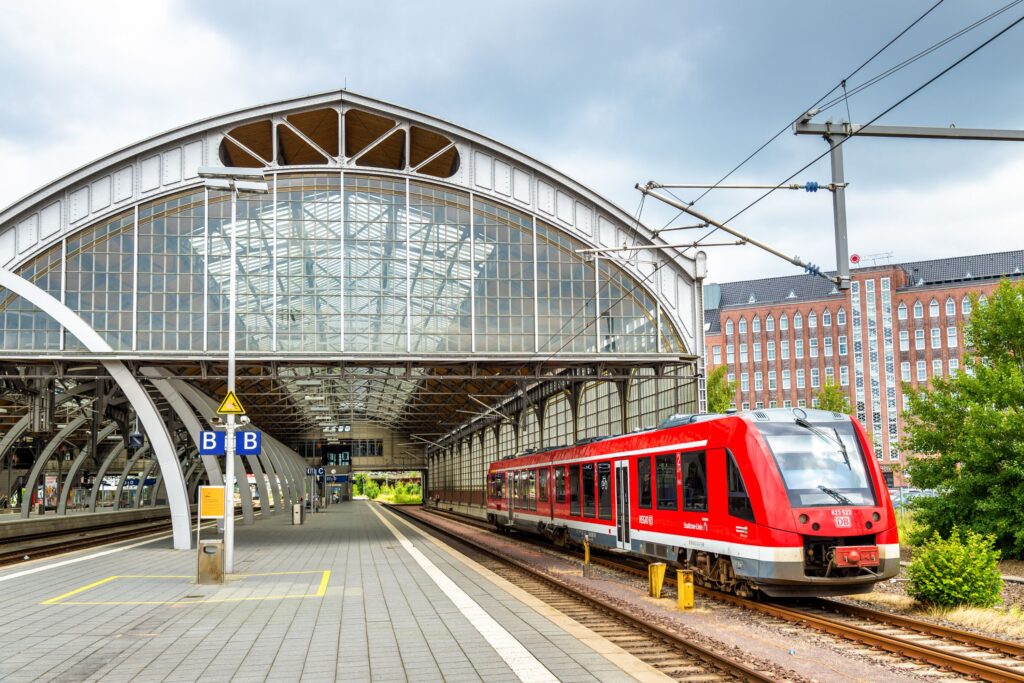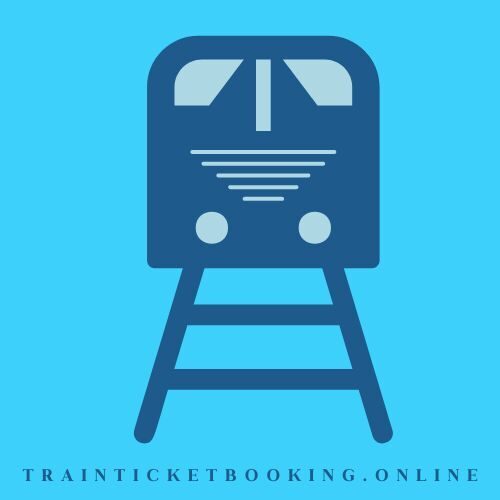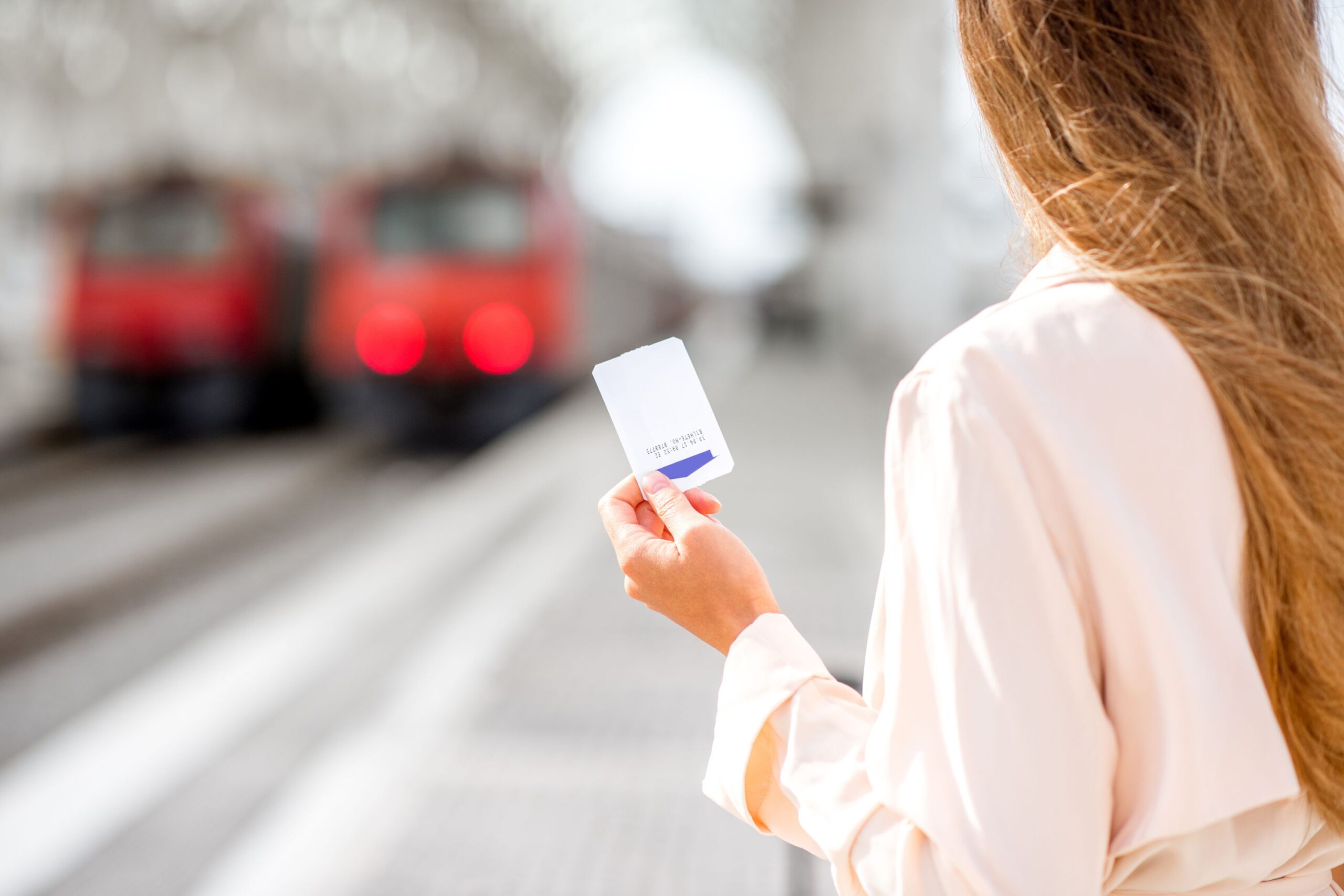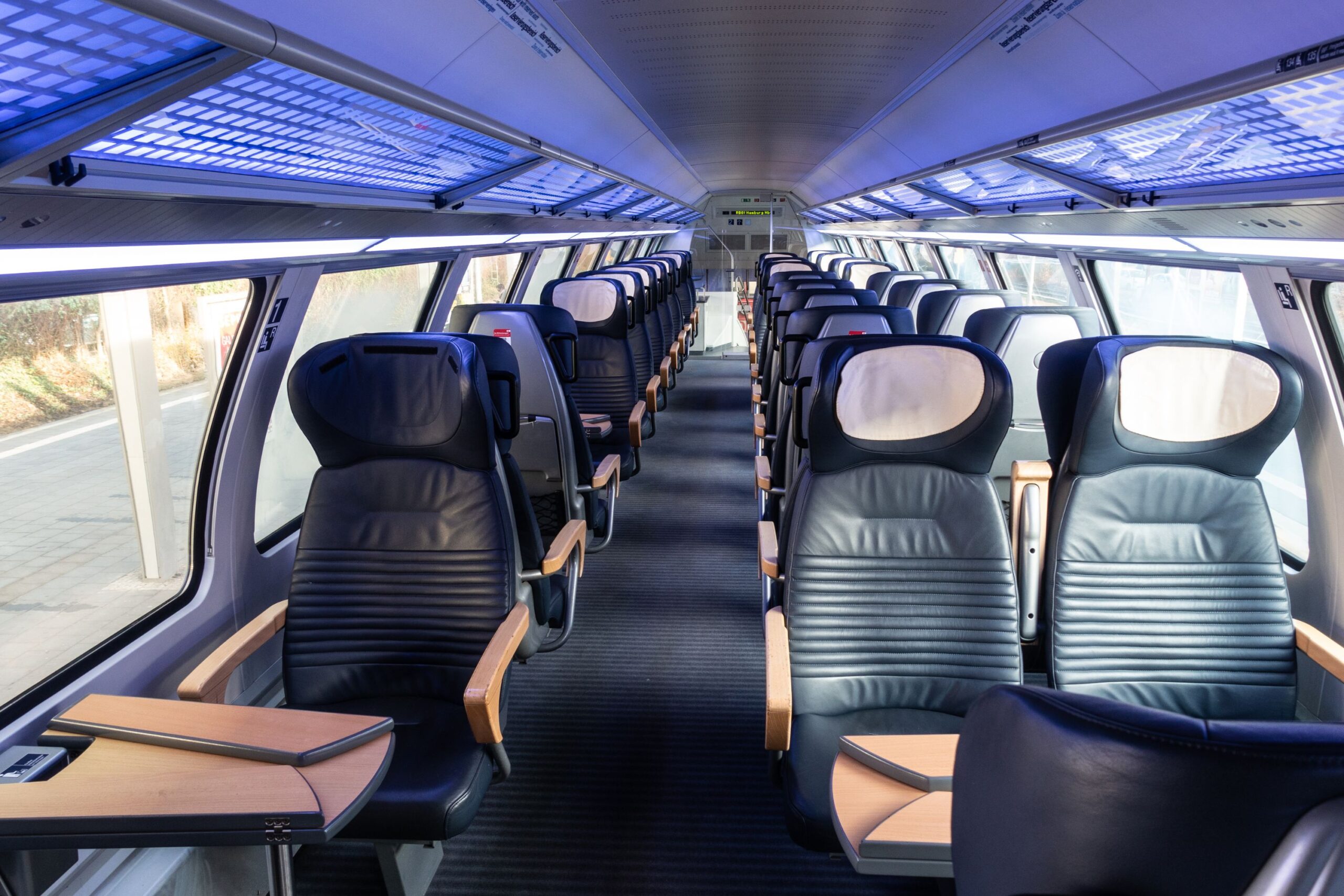Germany’s efficient and extensive railway system makes it a prime destination for travelers exploring the heart of Europe. Whether you’re a tourist looking to explore the country’s picturesque landscapes or a resident commuting to work, purchasing a railway pass in Germany can be a cost-effective and convenient way to travel. In this guide, we will walk you through the process of buying railway passes in Germany and provide tips to help you make the most of your journey.
Types of Railway Passes
Germany offers a variety of railway passes to suit different travel needs:
German Rail Pass: This pass is perfect for tourists planning to travel extensively within Germany. It offers unlimited travel on the national rail network for a specific duration, typically ranging from 3 to 10 consecutive days. You can choose between first and second class.
Regional Passes: Germany also has regional passes that cater to specific areas or states. For instance, Bavaria offers the Bayern Ticket, while the Schönes-Wochenende-Ticket is great for weekend travel.
City Passes: If you’re exploring a single city like Berlin or Munich, consider purchasing a city-specific pass that covers local public transportation.
Where to buy railway passes in Germany
Online: The easiest way to purchase a railway pass in Germany is through the official website of the Deutsche Bahn (DB), the country’s national railway company. You can select your pass, pay online, and receive a digital or physical ticket.
Train Stations: Most major train stations in Germany have ticket counters where you can purchase railway passes in person. Be prepared for potentially long lines, especially during peak travel times.
Travel Agencies: Some travel agencies also sell railway passes, but these may come with additional fees. Check the prices to ensure you’re getting the best deal.
Pricing and discounts of railway passes in Germany
Adults and Children: Railway passes in Germany are usually available at different prices for adults and children. Children under a certain age (often under 6) may travel for free, while those between 6 and 14 often receive discounts.
Youth and Senior Discounts: If you’re under 26 or over 60, you might be eligible for youth or senior discounts on certain passes. These discounts can make your travel more economical.
Group Discounts: Traveling with a group? Some passes offer group discounts, so make sure to inquire if you’re traveling with friends or family.
Railway passes’ activation and validity
Activation: Railway passes are typically activated on the first day of use. Make sure to write the start date on your pass before boarding your first train.
Consecutive vs. Flexible: Some passes are valid for consecutive days, while others offer flexible travel within a specific period. Choose the one that suits your travel plans best.
Making reservations of railway passes
Seat Reservations: While it’s not always mandatory, it’s advisable to make seat reservations for long-distance and high-speed trains, especially during peak travel times.
Reservation Fees: Keep in mind that seat reservations might come with an additional fee, so factor this into your travel budget.
Buying a railway pass in Germany can simplify your travel experience and save you money, whether you’re a tourist exploring the country’s vibrant cities or a local commuting to work.
With various pass options, purchasing through official channels, and considering discounts, you can make the most of Germany’s excellent rail network.

bloodua, Canva.com
How do I activate my German Rail Pass?
Activating your German Rail Pass is a straightforward process, and you typically start using it on the first day of your planned travel.
Here are the steps to activate your German Rail Pass:
Choose Your Start Date
The German Rail Pass offers various options for the duration of validity, such as 3, 4, 5, 7, or 10 consecutive days. Before you start your trip, decide on the date you want your pass to become active. This should be the date you plan to begin using it for train travel.
Fill in the Start Date
On your German Rail Pass, there should be a designated space where you need to fill in the start date. Write the chosen date clearly in the format DD.MM.YY (day, month, year). Use a pen in dark ink, and make sure it’s legible.
Keep Your Passport Handy
When traveling with a German Rail Pass, you may be asked to present your passport along with the pass to verify your identity, especially if you haven’t filled in your personal details on the pass.
Boarding the First Train
On the morning of your chosen start date, head to the train station and board your first train. This train ride will activate your pass, and it will be valid for the consecutive number of days corresponding to your pass type.
Stamping the Pass
In some cases, train conductors may ask to stamp your pass on the first day of travel to ensure it’s activated correctly. If this is required, the conductor will have a special stamp to mark your pass.
Check Your Pass for Validation
After activation, make sure your pass is correctly marked with the start date, and it matches your travel itinerary. Double-check to ensure there are no mistakes or discrepancies.
Keep Your Pass Safe
Throughout your journey, keep your German Rail Pass in a safe and secure place. You will need to show it to conductors or ticket inspectors on trains when requested.
Plan Your Itinerary
With your pass activated, you can now enjoy unlimited travel on the German rail network for the specified consecutive days. Plan your train journeys accordingly to make the most of your pass.
Remember that the German Rail Pass is intended for consecutive-day use.
If you have a 5-day pass, for example, you must use it on five consecutive days, starting from the date you’ve filled in.
Once your pass is activated, you can explore Germany’s beautiful landscapes and cities conveniently by train, making the most of your travel experience.

Leonid Andronov, Canva.com
How do German rail passes work?
German rail passes are convenient travel options that provide unlimited travel on the German railway network for a specified number of days within a set period. These passes are designed for both tourists and residents, offering flexibility and cost savings for those who plan to travel extensively by train within Germany.
Here’s how German rail passes work:
Choose Your Pass Type
Select the Duration: German rail passes are available for various durations, such as 3, 4, 5, 7, or 10 consecutive days. You choose the number of days based on your travel needs.
Choose the Class: You can opt for either first class or second class when purchasing your pass. First class provides more spacious seating and other amenities but is more expensive than second class.
Purchase Your Pass
You can buy your German rail pass through authorized retailers, online, at train stations, or even at some travel agencies.
Activate Your Pass
Before you start using your pass, you’ll need to activate it. To do this, write the start date on your pass in the designated space. This date should be the day you plan to begin using your pass for train travel.
Start Traveling
On the day you’ve written as the start date, you can begin using your pass for unlimited travel on the German rail network. You can board trains without having to purchase individual tickets.
Travel Flexibly
With your activated pass, you have the freedom to travel as much as you want within the specified number of consecutive days.
You can take any train, including regional, intercity, and high-speed trains, as long as they are part of the German railway network.
Check Your Pass
Be prepared to show your German rail pass to train conductors or ticket inspectors when requested. They may want to verify that your pass is valid and correctly filled in.
Plan Your Itinerary
Utilize the pass to explore various cities, regions, and attractions across Germany. You can customize your itinerary based on your interests and travel preferences.
Calculate Seat Reservations
While the rail pass covers train travel, it typically doesn’t include seat reservations. Consider making seat reservations for long-distance and high-speed trains, especially during peak travel times, to ensure you have a seat.
Enjoy Additional Benefits
Some German rail passes offer additional benefits, such as free or discounted admission to museums, attractions, or local transportation within specific cities or regions. Be sure to check your pass’s inclusions for these perks.
Monitor Expiry Date
Your pass is valid for the consecutive days you’ve chosen, so be aware of its expiry date. Once your pass expires, you’ll need to purchase separate train tickets for further travel.
In summary, German rail passes offer an economical and convenient way to explore Germany by train.
They provide flexibility and the freedom to travel extensively across the country, making them an excellent choice for travelers looking to experience the diverse landscapes and vibrant cities of Germany.
Does German Rail Pass include U-Bahn?
The German Rail Pass typically does not include access to U-Bahn (subway) systems in German cities. The German Rail Pass primarily covers train travel on the national railway network, operated by Deutsche Bahn (DB), and regional and local trains within Germany.
To use local public transportation systems such as U-Bahn, S-Bahn (commuter trains), trams, and buses within cities like Berlin, Munich, Frankfurt, or any other German city, you will need to purchase separate tickets or transportation passes. These local transportation networks are usually managed by individual city or regional transit authorities, and they have their own fare structures.
However, some regional passes or city-specific passes may offer combined transportation options, allowing you to use both the local transit system and regional trains within a specific area. For example, the Berlin Welcome Card provides unlimited travel on public transportation (including U-Bahn, buses, trams, and S-Bahn) within the city of Berlin, along with discounts at various attractions. These city passes can be an excellent option if you plan to explore a specific city extensively.
Before traveling within a German city, it’s advisable to research the local transportation options, fares, and available passes to choose the most cost-effective and convenient solution for your needs. Keep in mind that transportation systems and policies may change, so it’s always a good idea to check the latest information and inquire with local authorities or transit providers for the most up-to-date details regarding ticketing and passes.
Where is German rail pass valid?
The German Rail Pass is valid for unlimited travel on the national railway network of Germany, operated by Deutsche Bahn (DB). This pass allows you to travel throughout Germany, including:
- Major Cities: You can visit and explore major cities like Berlin, Munich, Frankfurt, Hamburg, Cologne, Stuttgart, Düsseldorf, and many others.
- Scenic Routes: The pass covers scenic routes that showcase Germany’s picturesque landscapes, such as the Black Forest, the Rhine Valley, the Bavarian Alps, and the Romantic Road.
- Regional and Intercity Trains: You can use the pass on regional trains (RE, RB), intercity trains (IC), and high-speed trains (ICE) that are part of the German railway network. This includes both daytime and nighttime trains.
- Airport Connections: The pass can also be used to travel to and from major airports in Germany, such as Frankfurt Airport, Munich Airport, and others.
- Ferry Connections: Some ferry routes that are operated in conjunction with the railway system may also be covered by the pass.
It’s important to note that the German Rail Pass primarily covers travel within Germany. If you plan to travel outside of Germany, you may need to purchase additional tickets for international journeys, although there are some exceptions and discounts available.
Additionally, while the German Rail Pass provides access to the national railway network, it typically does not include local public transportation systems like trams, buses, and U-Bahn (subway) systems within cities. You’ll need to purchase separate tickets or transportation passes for local travel within urban areas.
Advantages of buying railway pass in Germany
Buying a railway pass in Germany can offer several advantages, making it a convenient and cost-effective choice for travelers. Here are some of the key advantages of purchasing a railway pass in Germany:
Cost Savings
Railway passes often provide significant cost savings, especially if you plan to travel extensively within Germany. Compared to purchasing individual train tickets for each journey, a pass can offer a more economical way to explore the country.
Unlimited Travel
With a German rail pass, you can enjoy unlimited travel within the specified number of days or duration of validity. This means you can hop on and off trains as much as you want during that time, allowing for flexibility in your travel plans.
Flexibility
Railway passes offer flexibility in terms of travel dates and itineraries. You can choose the start date for your pass and plan your journeys as you go, making it suitable for spontaneous travelers.
Wide Coverage
The German Rail Pass covers the entire national railway network, including major cities, scenic routes, and popular destinations. It provides access to a vast and well-connected rail network, allowing you to explore urban areas and rural landscapes.
Time Efficiency
Purchasing a pass in advance can save you time at ticket counters and ticket machines, especially during peak travel times. You can simply board the train without the need for individual ticket transactions.
Convenience
Traveling with a pass simplifies the process of train travel in Germany. You don’t have to worry about purchasing separate tickets for each journey, which can be particularly convenient if you’re making multiple stops.
Reduced Planning Stress
With a rail pass, you have the freedom to adjust your travel plans on the go. You don’t need to pre-plan and pre-purchase individual tickets for each leg of your journey, making your trip less stressful.
Additional Benefits
Some German rail passes offer extra benefits, such as discounts on local transportation within cities, free admission to museums and attractions, and special offers for certain tours or experiences. These perks can enhance your travel experience.
Youth and Senior Discounts
Depending on your age, you may be eligible for youth or senior discounts on rail passes, making them even more affordable for specific age groups.
Environmentally Friendly
Traveling by train is generally more environmentally friendly compared to other modes of transportation, such as flying or driving, making it a sustainable choice for eco-conscious travelers.
Scenic Routes
Germany offers numerous scenic train routes, and a rail pass allows you to enjoy these picturesque journeys without the need for additional ticket purchases.
Railway pass in Germany can be a valuable investment for travelers seeking convenience, savings, and flexibility while exploring the country’s diverse landscapes, historic cities, and cultural attractions by train.


